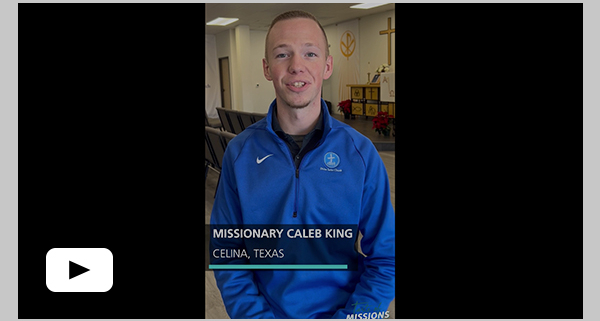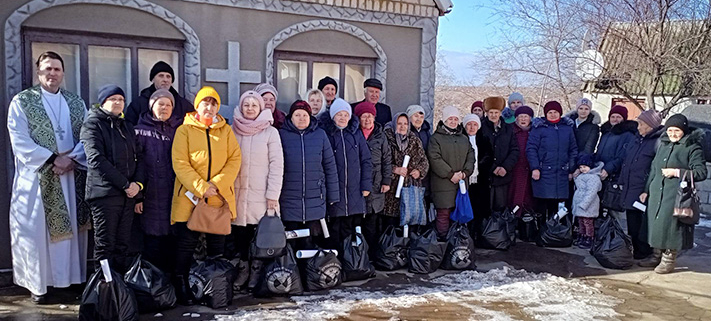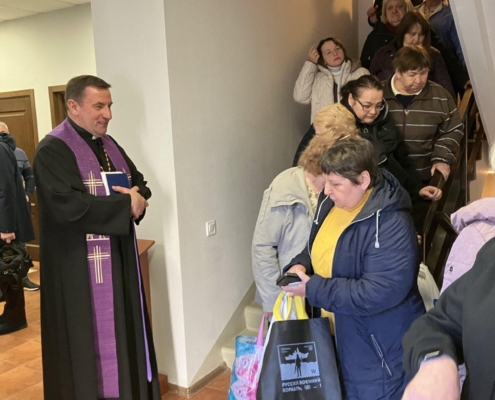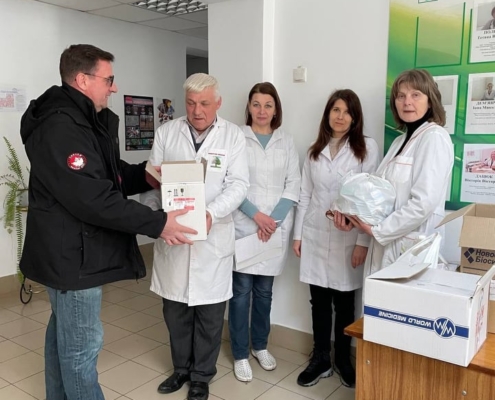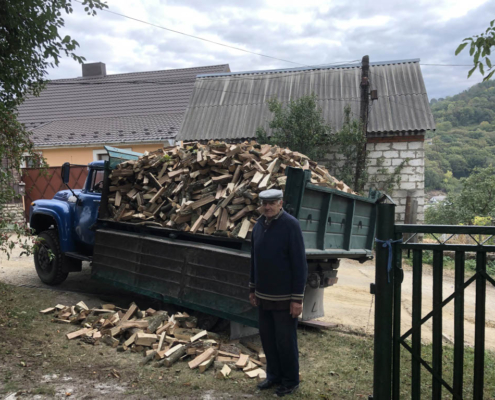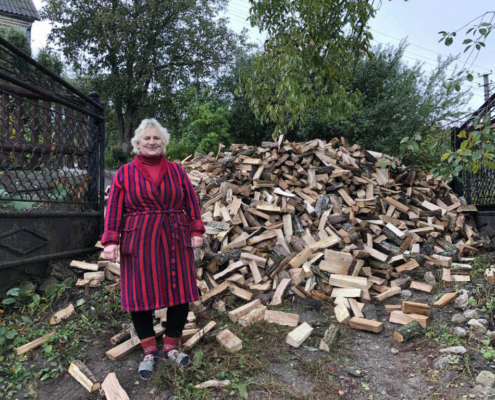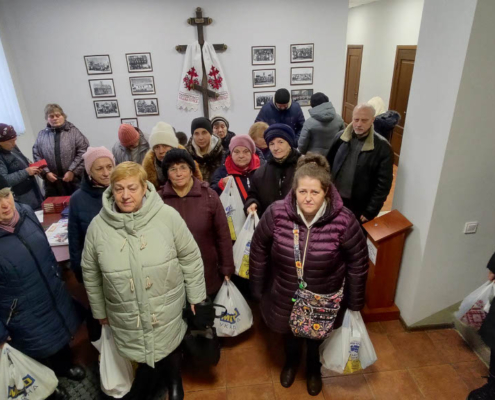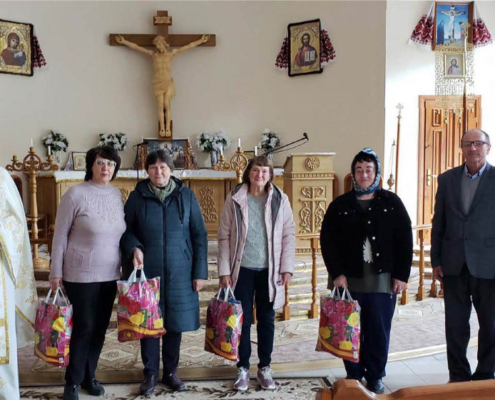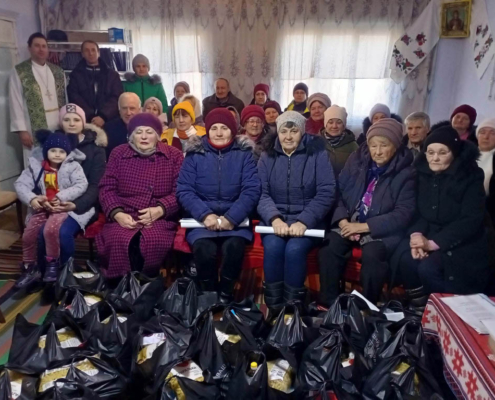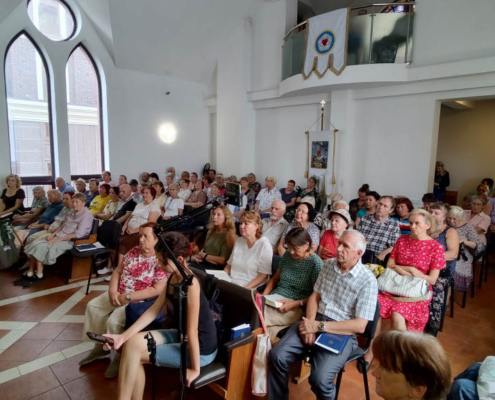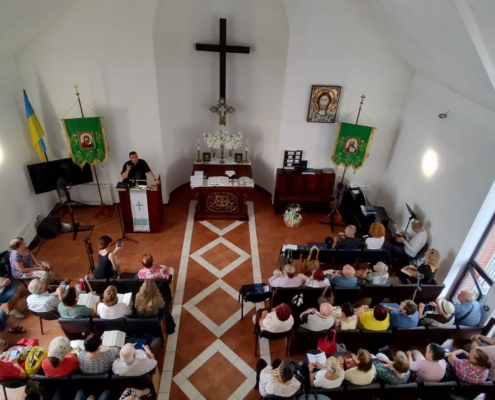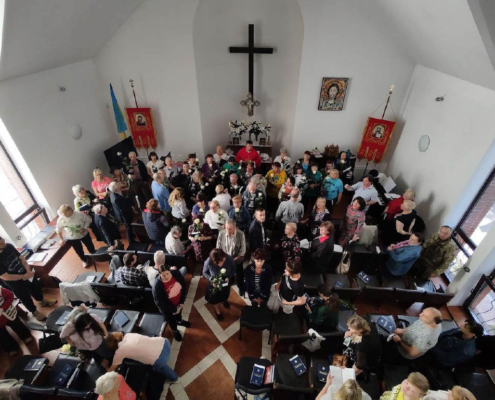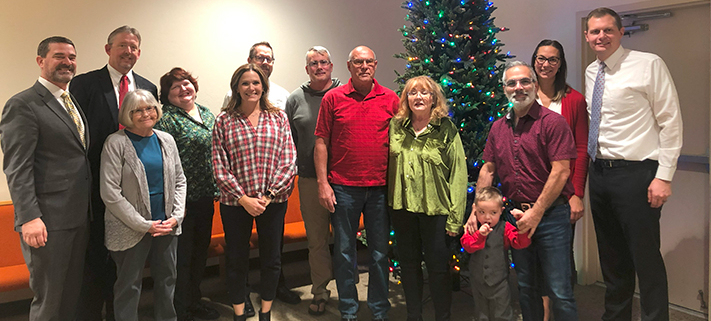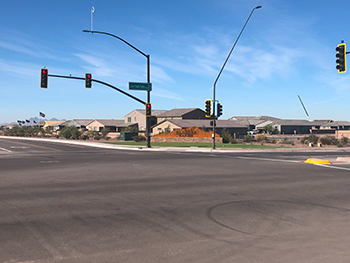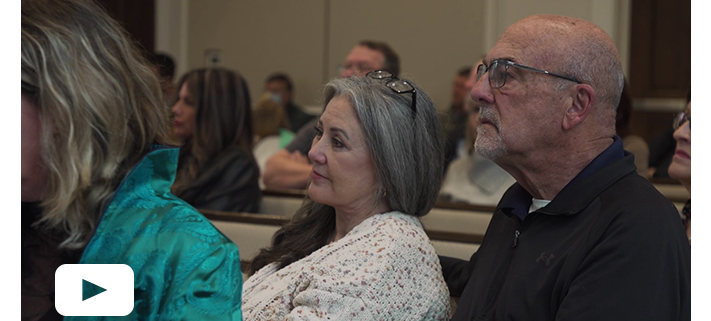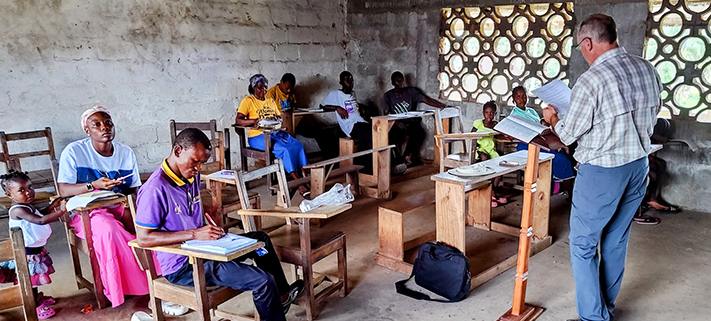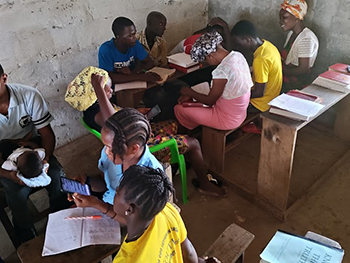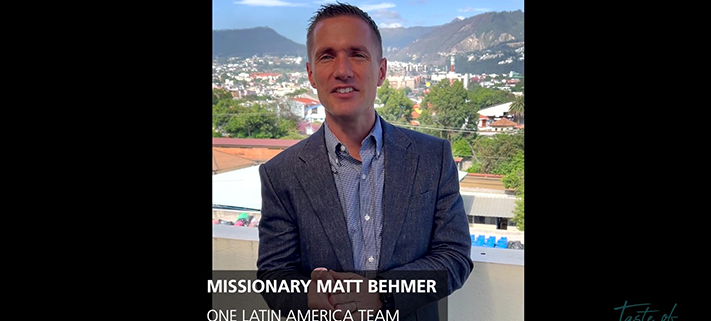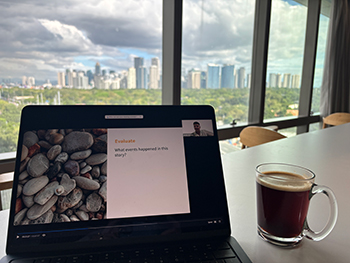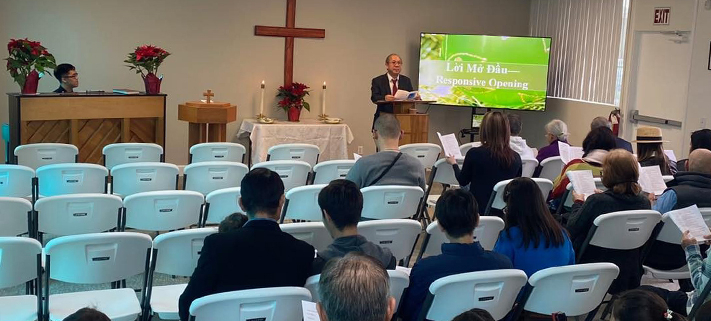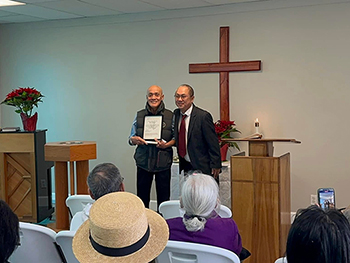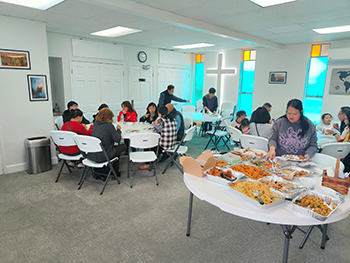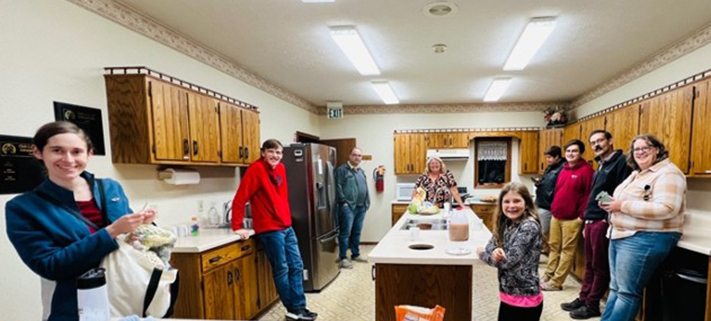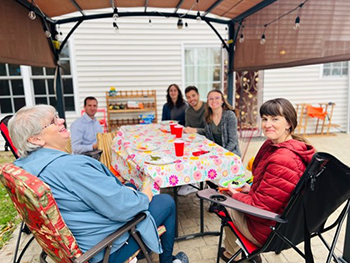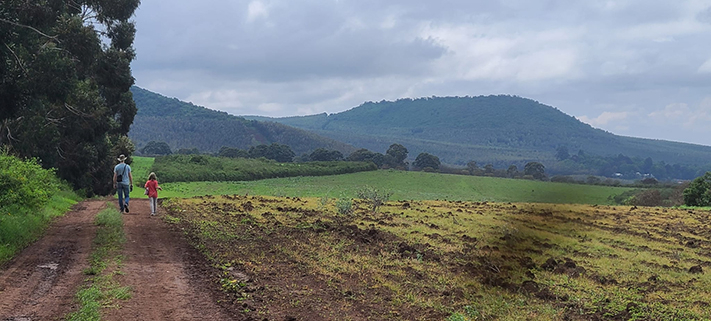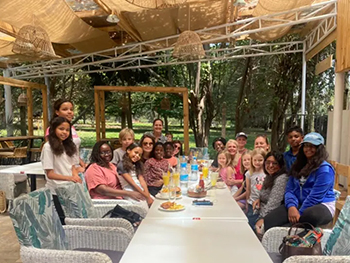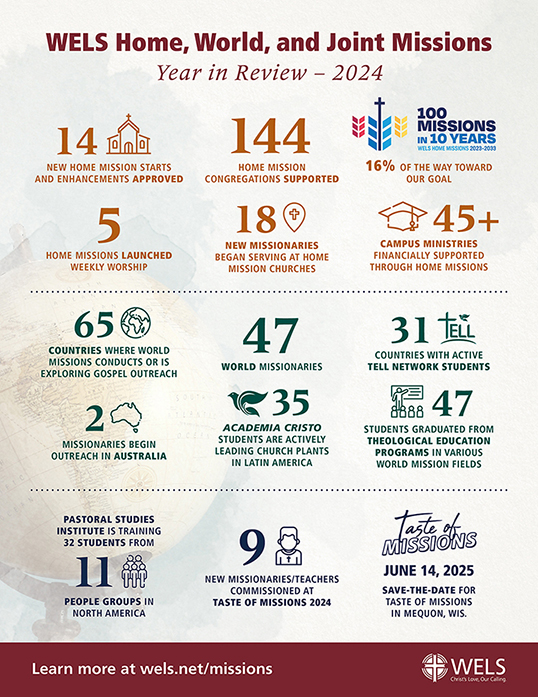 Thought Leadership is the detailing of ideas and sharing knowledge around a particular field, area, or topic of expertise. While Wikipedia contains no “thought leadership” entry, it does for “thought leader.” Here is the entry:
Thought Leadership is the detailing of ideas and sharing knowledge around a particular field, area, or topic of expertise. While Wikipedia contains no “thought leadership” entry, it does for “thought leader.” Here is the entry:
A thought leader has been described as an individual or firm recognized as an authority in a specific field[1] and also as business jargon.
Meanings
Go-to expert
From a thought leader’s perspective as the ‘go-to expert,’ being a thought leader means consistently answering the biggest questions on the minds of the target audience on a particular topic. Thought leaders are commonly asked to speak at public events, conferences, or webinars to share their insight with a relevant audience. In a 1990 Wall Street Journal Marketing section article, Patrick Reilly used the term “thought leader publications” to refer to such magazines as Harper’s.[2]
In the previous decade, the term was revived and re-engineered by marketers.
Criticism of the phrase and concept
Some writers have identified the phrase “thought leader” as an annoying example of business jargon.[3] Kevin Money and Nuno Da Camara of the John Madejski Centre for Reputation at the University of Reading’s Henley Management College write that the nebulous nature of the phrase (the unclear nature of “what is and what is not thought leadership”) contributes to its reputation among cynics as “meaningless management speak.”[4] Some writers, such as Harvard Business Review contributor Dorie Clark, have defended the phrase while agreeing “that it is very icky when people call themselves thought leaders because that sounds a little bit egomaniacal.”[5] New York Times columnist David Brooks mocked the lifecycle of the role in a satirical column entitled “The Thought Leader,” published in December 2013.[6]
A parody on the term was published in 2016 by Pat Kelly on Canadian television’s This Is That program. In the process of the discussion, imitating TED talks, Kelly elicits responses from the audience that exemplify the effect he describes as the result of applying well-known marketing techniques to achieve the impression of being an erudite speaker.[7]
Thought leader. (2022, December 13). In Wikipedia. https://en.wikipedia.org/wiki/Thought_leader
As I read through this definition, I see the need for thought leaders in the context of our synod, churches, and schools, but I also see why some would pause in aspiring to or seeing somebody else as one. After all, when a possible meaning includes the word “egomaniacal,” one should pause. Clearly, I think it is a worthy discussion. I’ve chosen to take up a few paragraphs to consider thought leadership in the context of ministry. It comes to mind as I’m working through the teaching of a graduate course for Martin Luther College entitled Enhancing Ministry through Technology. I am thinking about including an entire week on the topic. Let me explain why.
when a possible meaning includes the word “egomaniacal,” one should pause.
Leadership in the area of technology, especially as it relates to ministry, is a precious commodity within our midst. So as I write, I will primarily have technology leadership in mind. It is not that it doesn’t exist, but it is very much under the radar. Many pastors, teachers, and volunteers have the ability to consider the intersections of technology and ministry, discern its usefulness and then apply it thoughtfully. Many times the ministry greatly benefits. I see classroom innovations and, superior use of digital communications tools and personal productivity gains, and the list goes on. Becoming such a wise steward of these gifts takes time and earned expertise. A worker must understand the best uses for a website or social media platform or master a classroom management system, which can take hundreds or thousands of hours from an already stressed ministry workload. Some would consider such pursuits ancillary to the “true ministry” of gospel sharing. While arguments could be made, the real worth shouldn’t be measured by the first-degree impact but by the broader one.
This is where thought leadership steps up. To spend time becoming an expert without sharing that expertise seems to be poor stewardship. While sharing with and teaching others takes even more time, there are ways to prepare for the eventual thought leadership portion if you go into these pursuits with that end game in mind.
So, what would a thought leader do? For a person in ministry, that might initially look like a concern that other team members would benefit from their learnings and a formal way to transfer that knowledge, coach, consult, and participate in the ministry of others. In the world of educational technology, this does not always equate to a title like “Technology Director.” In fact, there could be multiple thought leaders within one faculty sharing their technical expertise. As for pastors, I’ve seen expertise shared on tools like Logos, task and project management, and the like within the ministry team, one-on-one with other pastors, or at circuit meetings. Why? Because they are passionate about the topic and confident in their own understanding and use cases of the tool, process, etc.
Thought leaders are informed opinion leaders in their areas of expertise. They are influencers in the most positive form of that label. But when is the right time to take on that role, and how do you do it? Here are five steps I would suggest to approach it.
Number One: As you learn, write. It is very difficult to share expertise with someone else without giving them something in written (or some lasting) form. Take the time to document what you have learned, which is usually not much. Initially, this can be rather unstructured, but it is more of a journal. But good writing, with an eye toward your future self’s needs, can be made up of excellent building blocks to piece together insight and meaningful content for others. I would suggest using a notetaking app like Google Keep, Apple Notes, OneNote, or Evernote. Use tags or some organization strategy if you like, but don’t go overboard. This is a step that can’t be distasteful.
Let’s say you’ve figured out how to craft an annual report of some sort using infographics rather than bland headings and paragraphs. You use a tool like Visme or Canva to create engaging presentations. Document your journey. Why did you select that tool? What are its benefits over something else? What templates do you like? What are your examples? What are your use cases? Perhaps at first, the documentation is more for yourself than anybody else so you can remember why and how you did it next year.
Number Two: Go deep, and don’t fill up your dance card. Once you have tools, techniques, and processes that work well for you, don’t succumb to the temptation of greener grass. Thought leaders look for excellence in themselves and their tools, but they aren’t quick to adopt every new shiny thing that crosses their path. They go deep. They know their area, their tools, and their chosen technologies. In the end, if it isn’t working, they know why and what the next thing should be…and they document that, too.
Number Three: Maintain a list of learnings you’d like to publish. If you truly have insights to share, there should be no shortage of things you can write about. Create a note for yourself that lists all the things that occur to you that might be worth sharing. This list can also act as a script for future learnings you’d like to undertake or things you want to go deeper into.
Number Four: Publish stuff. Spend two hours a week writing, screencasting, or whatever you will use to share your work. The discipline of setting time aside can’t be skirted. It needs to be intentional. Obviously, one of the staples of thought leaders is the blog. It is a place where you control everything. If you don’t want comments, then turn them off. You control the organization, the title, the length, the use of imagery, and what appears before, next to, and after your content – unlike things like Facebook and Twitter, where you have very little control. This is your narrative. This is you on the web.
This is your narrative. This is you on the web.
Consider sites like WordPress, Squarespace, Edublogs, and Blogger. There are hundreds of others. If you want to share content like screencasts or you are comfortable in front of a camera sharing your expertise, one obvious choice is YouTube. It is so easy to publish. One benefit of self-publishing is that you have a little more control over what the internet or Google thinks you are. When someone searches your name, your content will likely appear, rather than what others might have written about you somewhere else.
Number Five: Promote your stuff. There is no sense in publishing if you don’t let your intended audiences know there is good stuff to be had. This doesn’t have to be marketing; look for opportunities to share your experiences and expertise. In fact, you may discern many more opportunities to share because you have taken the time to document what you’ve taken the time to get smart on. You will even find a greater thirst to learn from the other thought leaders in areas you are interested in. Your network will grow, and you will, too…to benefit the kingdom.
One place in my ministry area where I see many budding thought leaders is the WELSTech Google Group. Rarely will a question be asked that isn’t responded to with a most thorough and thoughtful response. And usually spot on! Those who respond are experts in their fields. They’ve been bloodied and survived to tell the tale to the benefit of others. The short step to broadening their reach and value to the community is to publish. That is a good way to identify if you are a potential thought leader. When asked, you share your expertise. The next step is obvious, I hope.
What God has gifted you with is worth sharing. Your insights, ups and downs, struggles, and successes can all contribute to a larger
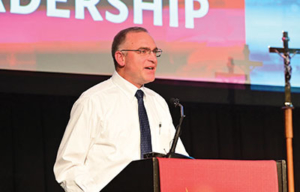
Rev. David Rosenau, keynote speaker
ecosystem of learning. From my observations, there is far too much wheel-inventing going on. That’s poor stewardship. That’s harmful and wasteful to ministry opportunities. With today’s tools, there really are few barriers to sharing your useful and wonderful and helpful thoughts.
Many years ago, I taught a Winterim course at Wisconsin Lutheran Seminary. Winterim is a two-week session between semesters that gives students an opportunity to study in areas of personal interest not normally part of the seminary curriculum. The course I taught was on pastoral productivity. I had forgotten that I had even taught the course until a pastor approached me with thanks for the learnings I had shared during that course. He said it had and still is positively impacting his ministry. It made a difference.
That is the thing. You don’t determine how God will use your gifts, experiences, or story. He does. Making yourself available for ministry opportunities is what stewardship is all about. Finding ways in true humbleness to share your giftedness is the point.
Finding ways in true humbleness to share your giftedness is the point.
Of course, thought leadership isn’t only for techie topics. As I write, plans are being made for another WELS Leadership Conference, which will be held in Chicago, IL again. I’m excited to attend, as many ministry thought leaders will be willing to stand in front of people and share what God has allowed them to learn and experience. What a blessing! However, I also believe the influence and benefit of a “tech in ministry” thought leader must be as broad as possible. Technology changes fast, and I see many frustrated by it rather than being enabled by it. What a waste. I look forward to many more taking on the joys of thought leadership, not in an egomaniacal fashion, but in true humility and a desire for true learning stewardship.

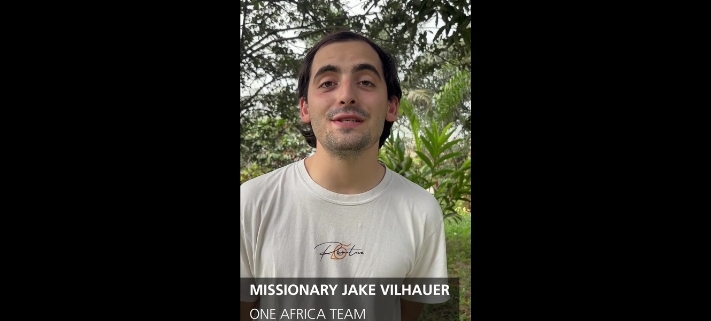
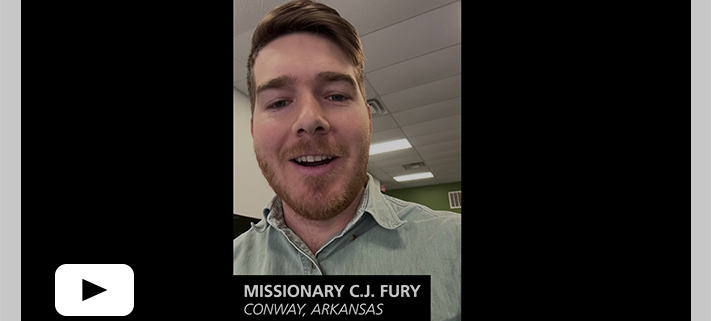
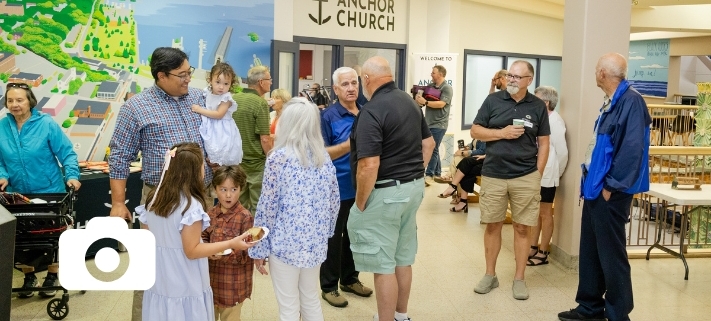

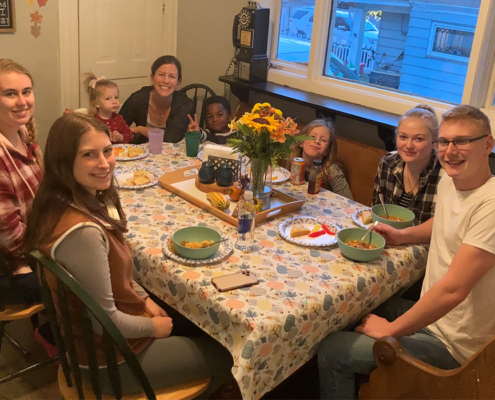
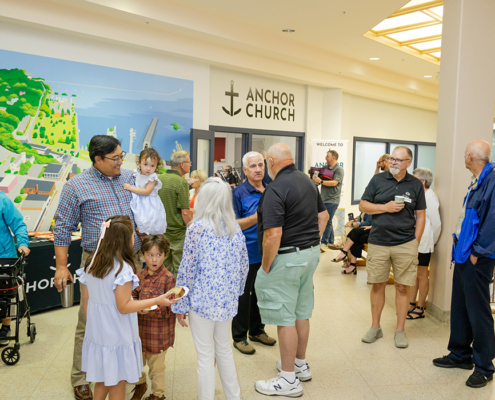
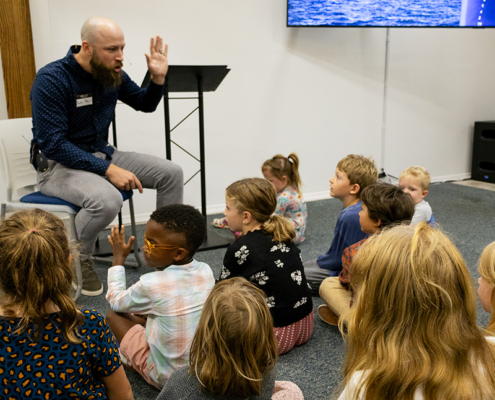
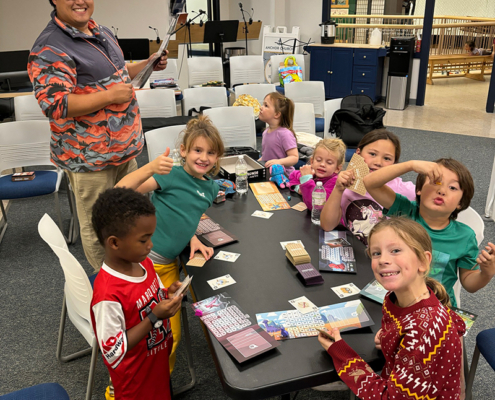
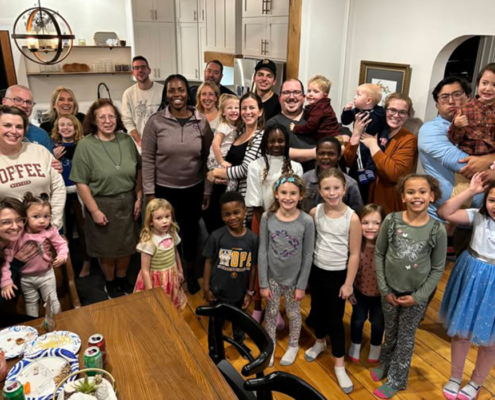

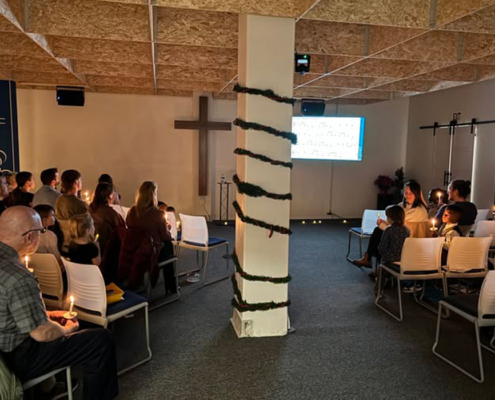
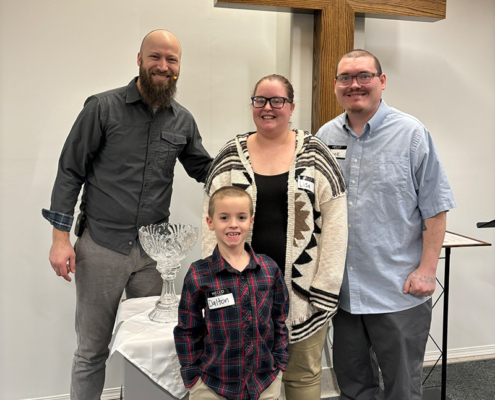
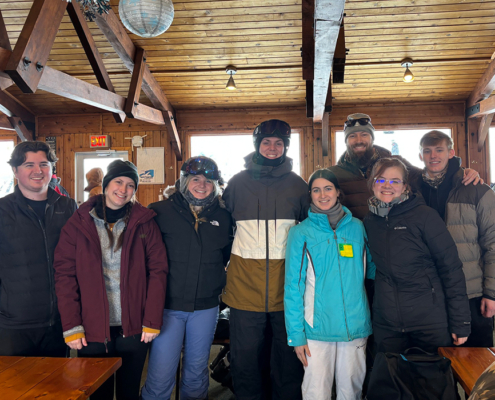
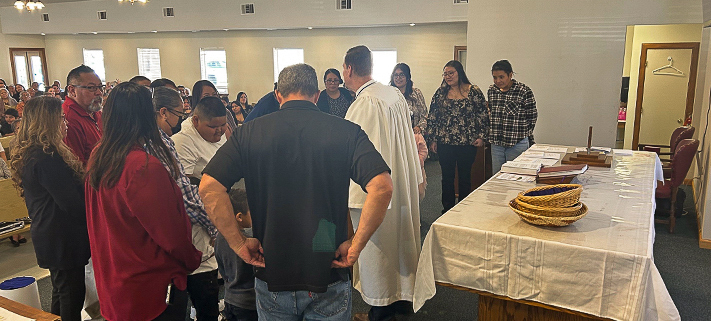
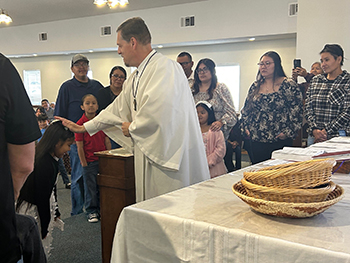
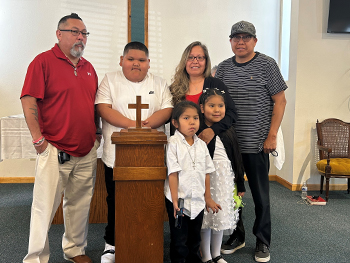
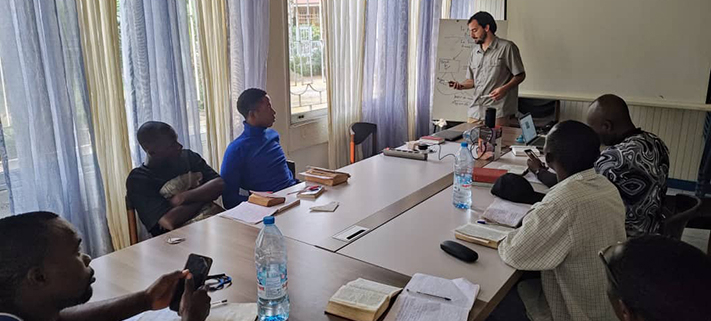
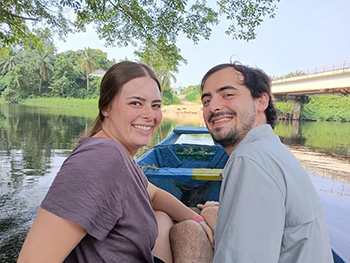

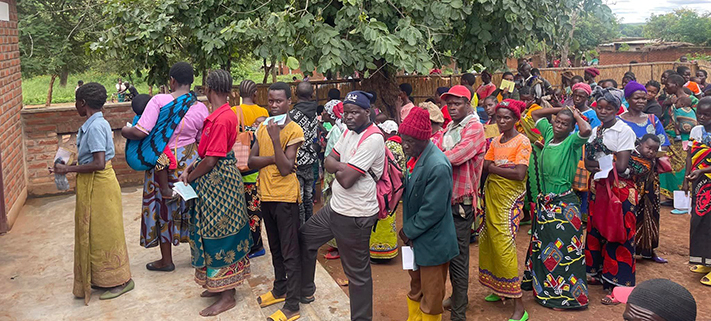
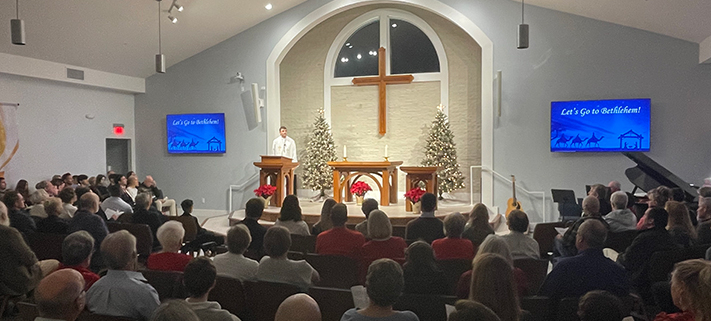
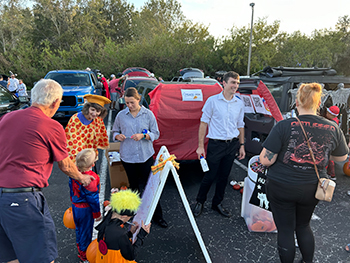
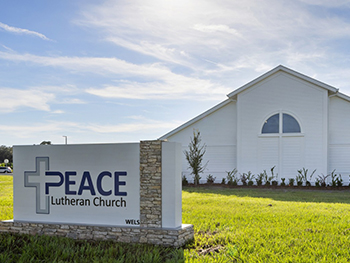
 Thought Leadership is the detailing of ideas and sharing knowledge around a particular field, area, or topic of expertise. While Wikipedia contains no “thought leadership” entry, it does for “thought leader.” Here is the entry:
Thought Leadership is the detailing of ideas and sharing knowledge around a particular field, area, or topic of expertise. While Wikipedia contains no “thought leadership” entry, it does for “thought leader.” Here is the entry:
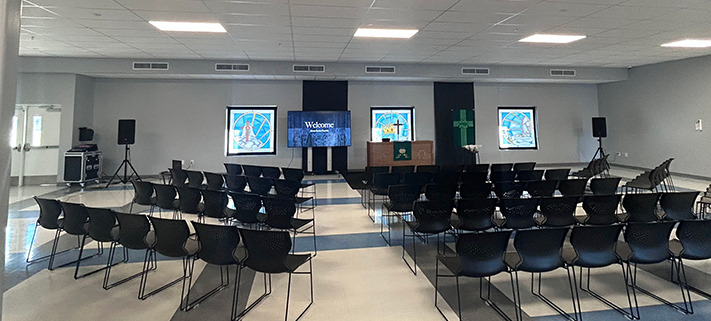
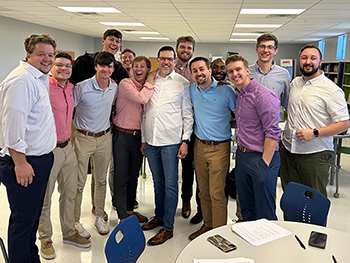
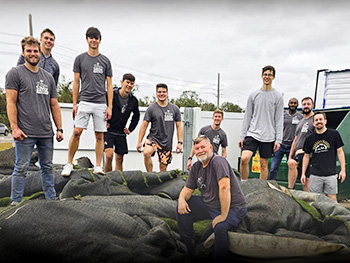
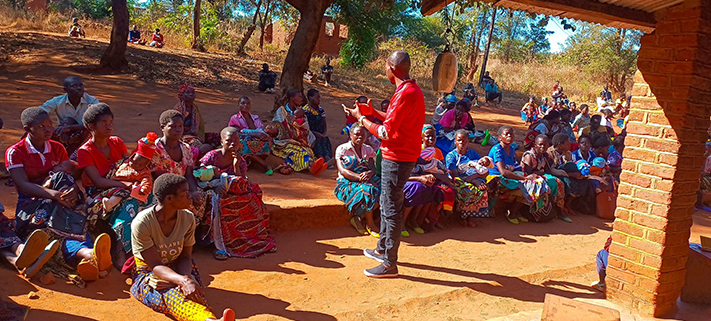
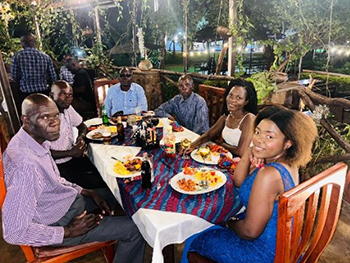

 All Lutheran grade schools are invited to participate in our annual Taste of Missions School Challenge! Visit
All Lutheran grade schools are invited to participate in our annual Taste of Missions School Challenge! Visit  Calling all WELS and ELS high school artists! Express your creativity and learn about WELS mission work in the annual Taste of Missions Poster Contest. Craft an 11” x 17” masterpiece capturing the heart of either WELS Home or World Missions. Submit by April 25, 2025, and your art could be showcased at the Taste of Missions event on June 14, 2025, at Wisconsin Lutheran Seminary in Mequon, Wis. Two overall winners (one from Home Missions and one from World Missions) will receive a $250 Amazon gift card, Taste of Missions swag bag, and their artwork will be prominently featured at the event and in the event program. All other submissions will be eligible to be voted “fan favorite” by attendees at Taste of Missions for another chance to win.
Calling all WELS and ELS high school artists! Express your creativity and learn about WELS mission work in the annual Taste of Missions Poster Contest. Craft an 11” x 17” masterpiece capturing the heart of either WELS Home or World Missions. Submit by April 25, 2025, and your art could be showcased at the Taste of Missions event on June 14, 2025, at Wisconsin Lutheran Seminary in Mequon, Wis. Two overall winners (one from Home Missions and one from World Missions) will receive a $250 Amazon gift card, Taste of Missions swag bag, and their artwork will be prominently featured at the event and in the event program. All other submissions will be eligible to be voted “fan favorite” by attendees at Taste of Missions for another chance to win.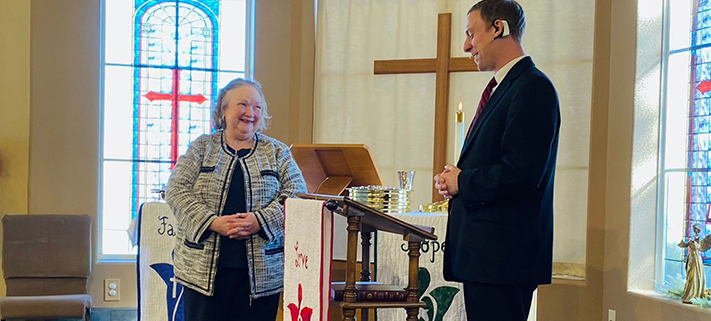
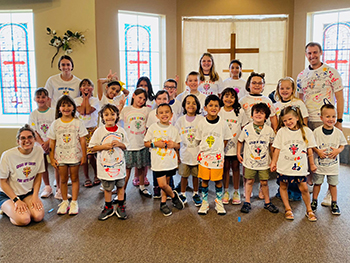 Twelve years, a vacant house, and two leased facilities later, many of those who attended that first service can still be found worshiping and working together at Cross of Christ. And God has added even more. By God’s grace, and the generosity of his people, the congregation now owns a piece of property along a major road in the fastest-growing part of Las Cruces, N.M., and is working toward building a permanent facility. But that hasn’t come without its challenges either, including a prolonged property trade and months of waiting for a flood zoning redesignation.
Twelve years, a vacant house, and two leased facilities later, many of those who attended that first service can still be found worshiping and working together at Cross of Christ. And God has added even more. By God’s grace, and the generosity of his people, the congregation now owns a piece of property along a major road in the fastest-growing part of Las Cruces, N.M., and is working toward building a permanent facility. But that hasn’t come without its challenges either, including a prolonged property trade and months of waiting for a flood zoning redesignation.

